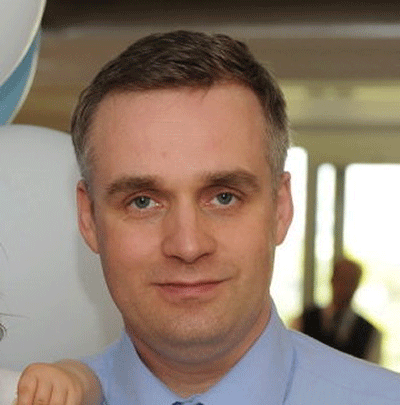Some people overcome autism, claims a scientist.
Researcher Dr Paul Whiteley says despite the description of autism as a “lifelong condition”, “growing research evidence” shows it is not “lifelong for everyone”.
Whiteley, of Sunderland-based autism research group ESPA Research, points to work by Emily Moulton showing some children “lose their diagnosis”.

Dr Paul Whiteley, who says research shows some children overcome autism
Moulton, a University of Connecticut researcher, published findings in 2016. These showed that 9 per cent of autistic two-year-olds demonstrated “optimal progress” when examined two years later.
Neurodiversity
Whiteley’s work is certain to anger neurodiversity advocates. They argue that autism is not an illness and people with the condition simply have a different type of brain to the “neurotypical”.
Neurodiversity advocates regard autism as part of their identity. They see treatment as the modern-day equivalent of trying to make gay people straight.
But in an email, Whiteley wrote that “efforts to depict autism as a lifelong ‘identity’ for all” are not in line with current scientific understanding.
Nor do they consider the massive variety that “the label encapsulates”, he wrote.
‘Not a systematic evaluation’
Carol Povey is the director of the National Autistic Society’s Centre for Autism.
She stressed that Whiteley’s piece, published by Dove Medical Press, is a “discussion article”. It was not, she said, a “systematic evaluation” of all research.
Povey insisted autism is a “lifelong neurodevelopmental disability”. However, she said opportunities for people can change with the right support.
Research on children who lose diagnosis
In 2017, researcher Dr Nahit Motavalli Mukaddes, of the Istanbul Institute of Child and Adolescent Psychiatry, published research on children who lose their autism diagnosis.
She pointed to work suggesting that between 5 per cent and 25 per cent of children will lose their autism diagnosis after early intervention.
But she concluded most children who overcome autism will later develop related psychiatric conditions. These include attention deficit hyperactivity disorder (ADHD) and obsessive-compulsive disorder (OCD).
Related:
- Opening soon: UK’s first centre for diagnosis and therapy of autism and related conditions
- Self-harm crisis of delays in diagnosis
- Discrimination in restricting diagnosis
- Tests reveal anxiety as second diagnosis
- New test heralds early autism diagnosis
- Delays in diagnosis deny new therapy
Published: 25 October 2019















